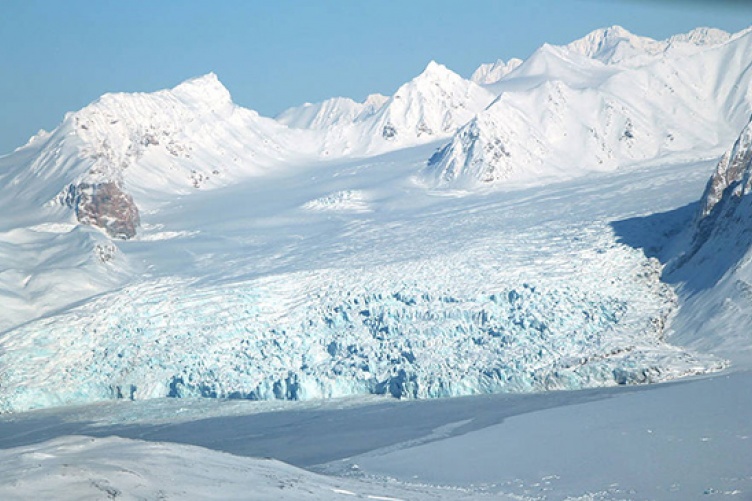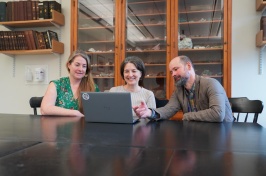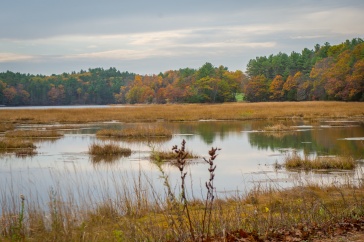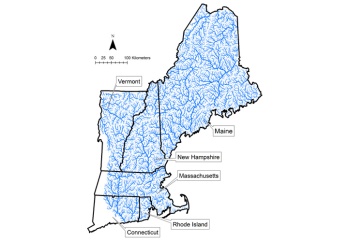
Image: NASA/John Sonntag
As the Arctic experiences rapid alterations in its landscape due to climate change, questions are beginning to emerge about how to best plan for the future in regions where ice, snow and permafrost currently exist. UNH researchers have received funding to study the use and governance of these "frozen commons" — interconnected Arctic landscapes that are shared, used and managed by a diverse array of governments, Indigenous peoples and local communities — in order to improve the resilience of these regions.
With a $488,983 grant provided by the Navigating the New Arctic NSF Initiative, UNH will collaborate with five other universities and social, environmental and civil engineering scientists on the five-year project. The research will focus on three major elements — natural and built environments and social systems — that are critical to understanding the changing Arctic.
“The project sets the stage for a convergence of knowledge and concepts across diverse cultural and political contexts, starting with thoughts held by Indigenous and local communities and scaled up to those implemented by regional stakeholders,” said Alexander Shiklomanov, research assistant professor in UNH’s Earth Systems Research Center who is the principal investigator on the grant. “By providing recommendations to policy makers, increasing education efforts and fostering extensive community-to-community and science-to-community adaptation and innovation, the goal is to help promote sustainability and resilience in the Arctic.”
The research will take place in Arctic regions within Alaska and Russia, where scientists will work closely with local communities, Indigenous people and governments on all parts of the project, including research design, methodologies, data collection and dissemination. The team will host workshops with local and Indigenous community members discuss their progress and share their results more broadly.
As part of the grant, Shiklomanov will focus on the environmental components of the frozen commons, including the current state and dynamics of climate, permafrost, hydrology, vegetation and geomorphology, he says, building on data previously collected by other UNH researchers and adding information provided by the local communities. The data will be archived and analyzed using a new online system that will be developed by UNH research scientist Alex Prusevich and Stanley Glidden, a UNH information technologist. Weiwei Mo, UNH assistant professor of environmental engineering, will develop and implement a role-play simulation for the frozen commons and will also develop engineering solutions to improve the sustainability of those Arctic landscapes.
Shiklomanov says he’s also interested in developing a new methodology to determine the environmental thresholds and tipping points for the snow, ice and permafrost conditions that allow those regions to be used as frozen commons. “This methodology can then be applied to other socially important environmental elements or domains,” he adds.
The Institute for the Study of Earth, Oceans, and Space (EOS) is UNH's largest research enterprise, comprising six centers with a focus on interdisciplinary, high-impact research on Earth and climate systems, space science, the marine environment, seafloor mapping and environmental acoustics. With more than $60 million in external funding secured annually, EOS fosters an intellectual and scientific environment that advances visionary scholarship and leadership in world-class research and graduate education.
-
Written By:
Rebecca Irelan | Institute for the Study of Earth, Oceans, and Space | rebecca.irelan@unh.edu | 603-862-0990





















































